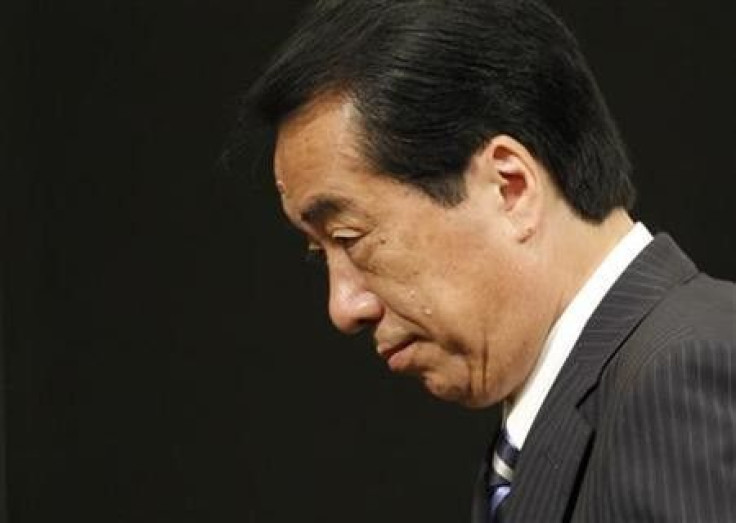Pressures mounting on Japan PM to resign

Japan's beleaguered Prime Minister Naoto Kan has shrugged off calls for him to resign from office, soon after his former foreign minister quit as a result of a donation scandal after only six months on the job.
The former foreign minister, Seiji Maehara, was a key ally of Kan’s and was even heralded as a potential successor to him as Prime Minister.
Kan has informed the Japanese parliament that he plans to satisfy his responsibilities until elections (which are required by law to be held no later than late 2013.)
Carrying out the administration's duties for a four-year term and then letting the people decide at the ballot box is best for the people themselves, Kan told a parliamentary session.
However, the opposition, which dominates the upper house of Parliament, demands that Kan call an early election and say they may prohibit his budget proposals.
Moreover, public opinion polls indicate that more than half of the public wants Kan to step down.
Kan is the fifth leader of Japan in as many years.
Many prime ministers before me have bowed out after short periods of time, said Kan. I believe it's desirable for the people and for the parliamentary system to have the people decide whether to change the government by judging the lower house over its full four-year term.
Japan’s most prominent media have also come out against Kan.
The conservative newspaper Yomiuri Shimbun said Kan has been driven into a tight corner,” while the liberal paper Mainichi Shimbun wonders whether Kan’s rule will collapse. Even the financial daily Nikkei said Kan’s government is standing on the edge of a cliff.
Making things worse, the former leader of Kan’s ruling Democratic Party of Japan, Ichiro Ozawa, soon faces trial over alleged funding violations.
As a result, the government is locked in a stalemate and there are growing concerns that of Kan’s administration collapses, any efforts to attack Japan’s financial and debt problems will be further delayed.
The nation’s public debt is almost at 200 percent of GDP, while the costs of taking care of a rapidly aging population are escalating. Among Kan’s proposed measures are an increase of the 5 percent sales tax and a government bond offering.
© Copyright IBTimes 2024. All rights reserved.











